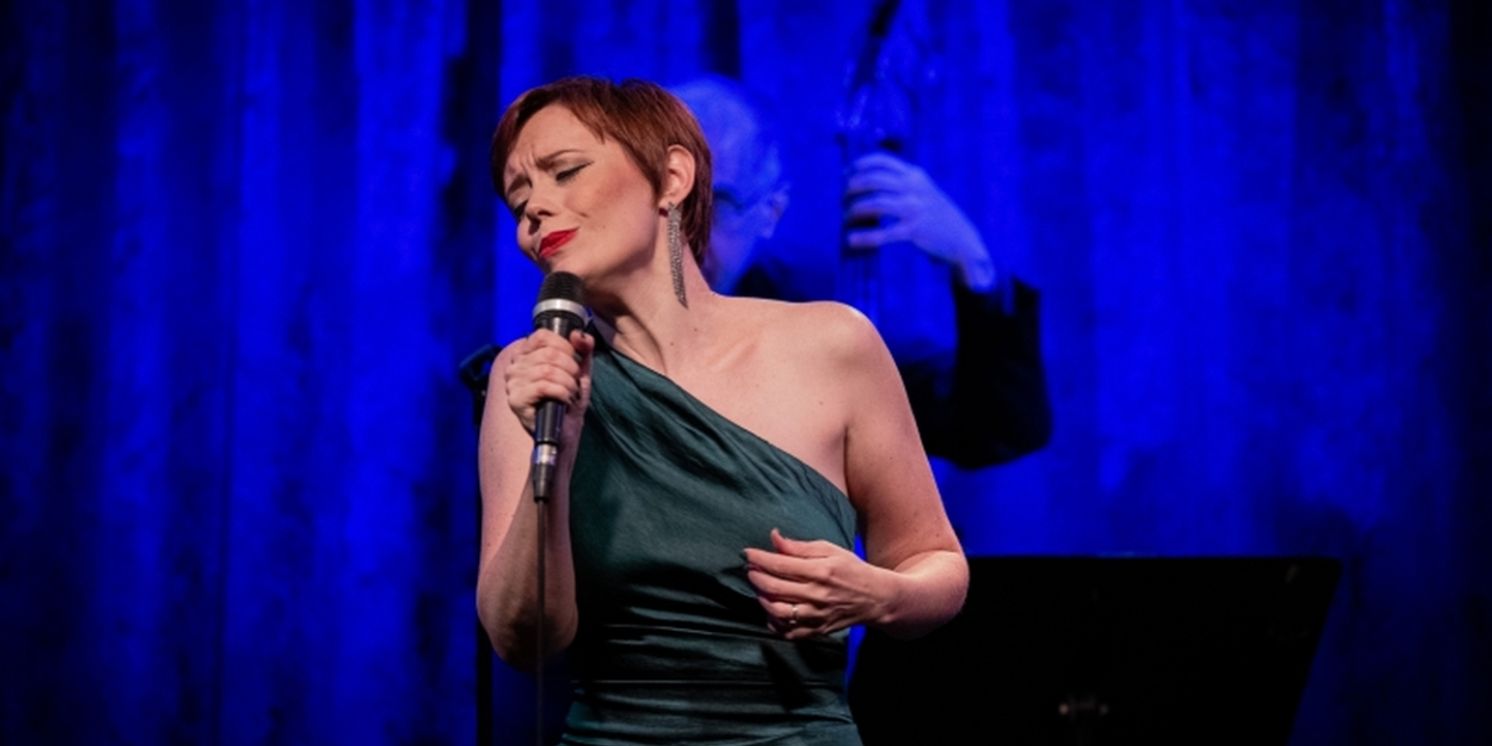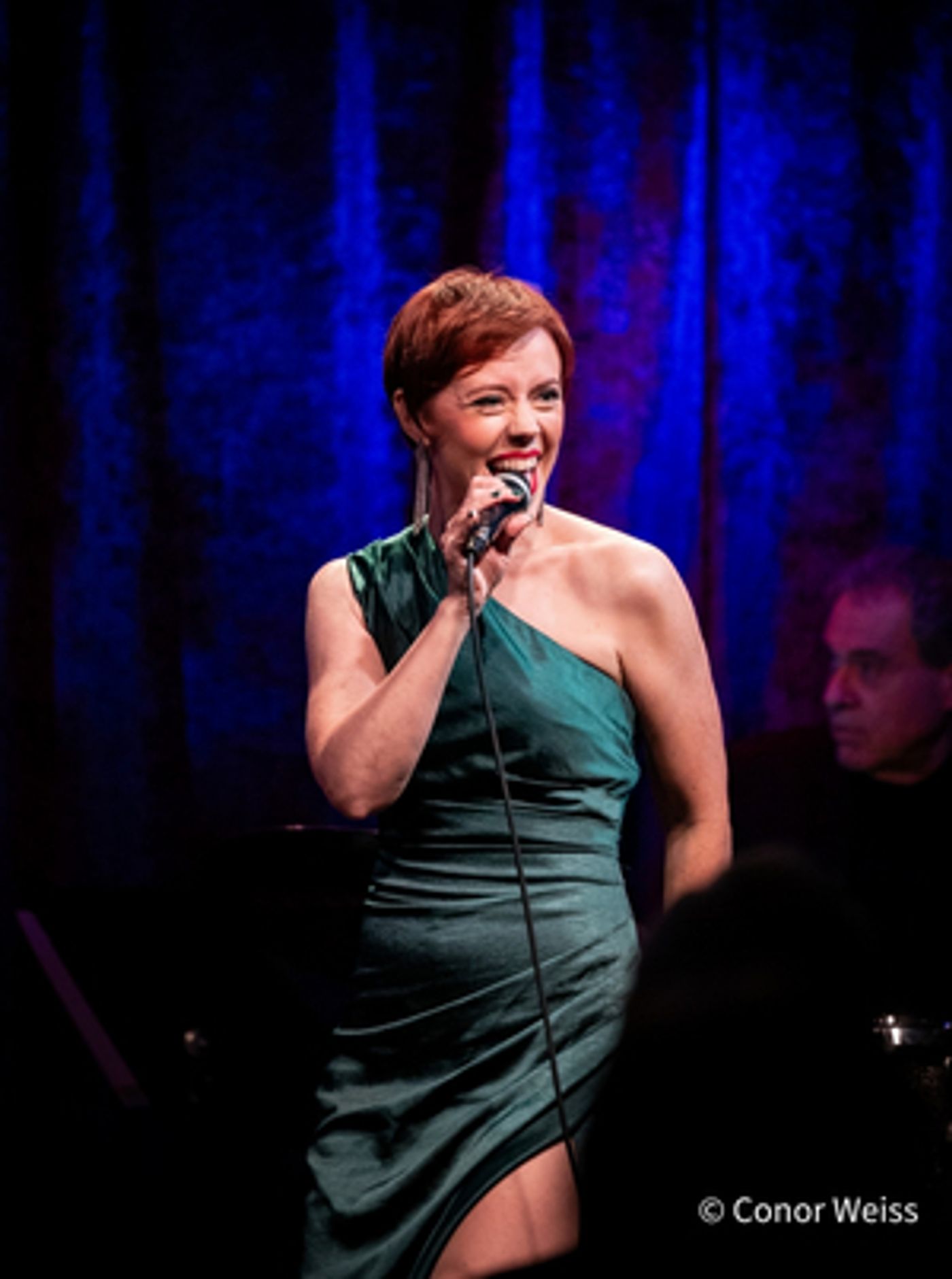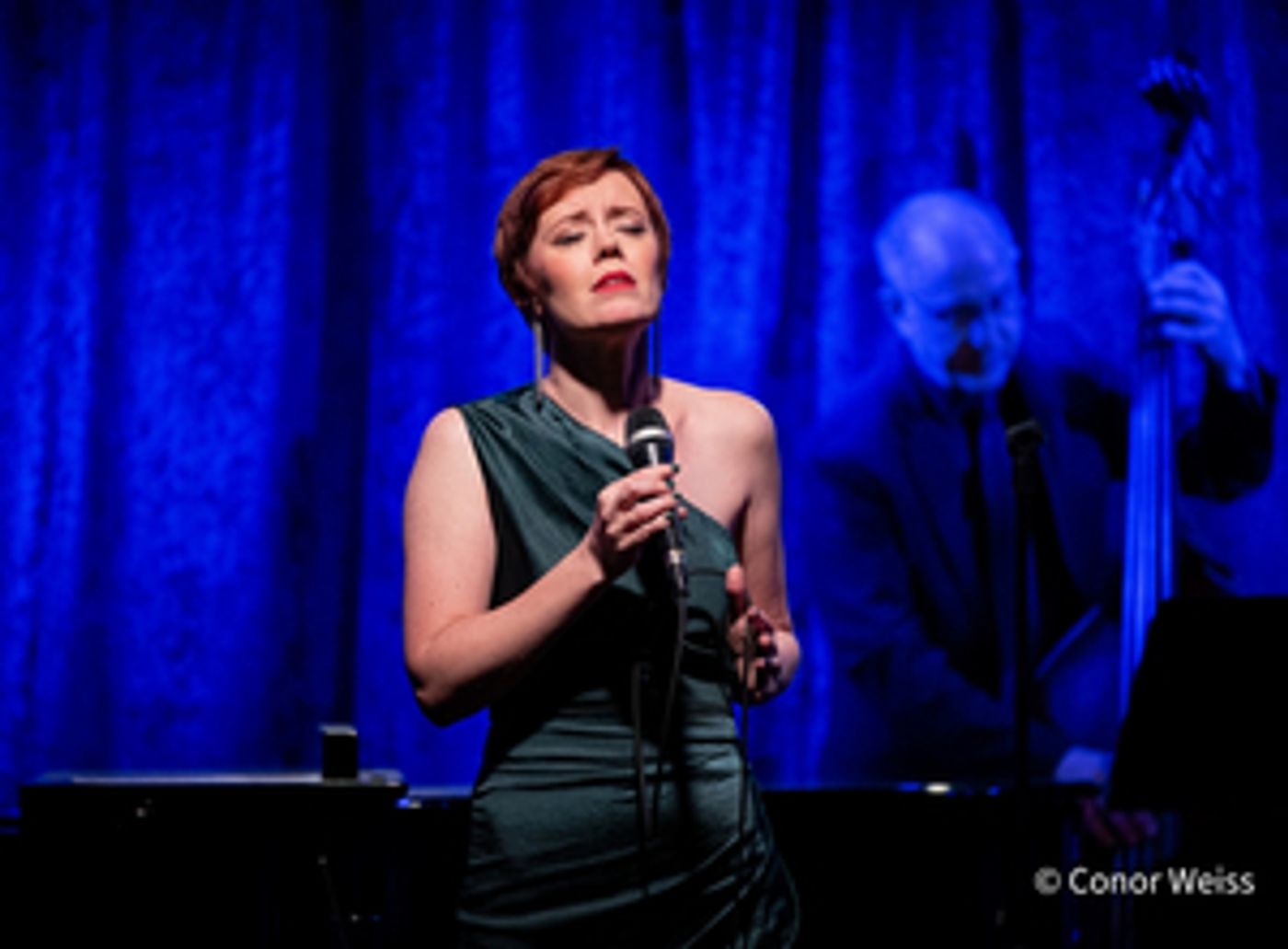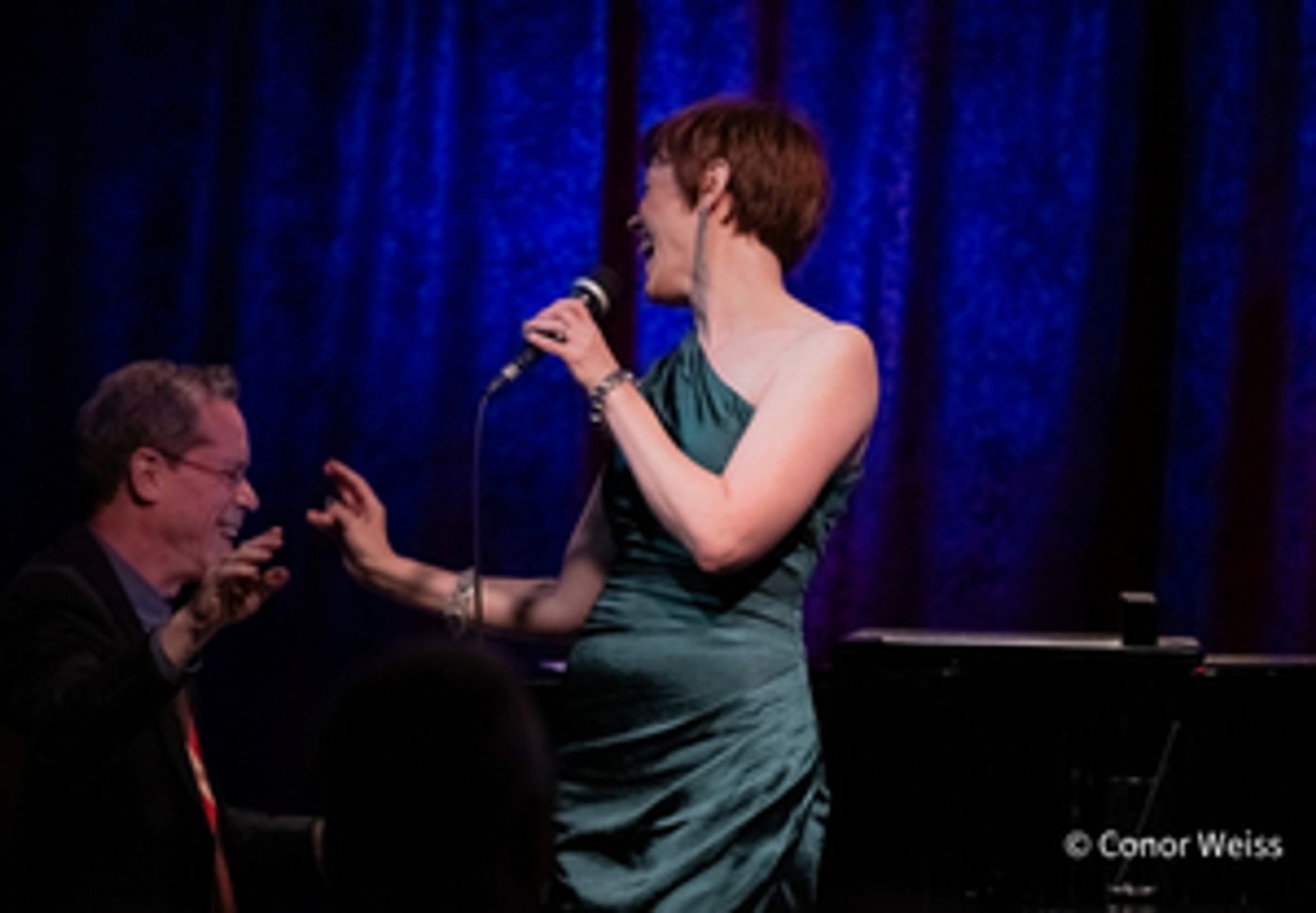Review: Carole J. Bufford Exemplifies DIVINE DECADENCE at Birdland Theater
This stalwart performer captures the heart with her bittersweet harmonies.

If there’s one takeaway from an evening with Carole J. Bufford, it is that I’ll be looking forward to her next show, open mic appearance, or wherever she might appear. This time at the theater, she dressed to the nines and moved with style, embodying the glamour that she recalled in the stories she shared behind, and surrounding, the songs she selected from ten separate decades--the 1920s to the 2020s. Many comparisons have already been drawn between that golden decade and our contemporary times, but soon this decade will be the only ‘20s on the mind. While the years have had their ups and downs, Bufford focused on those tunes that, in her words, communicated “DECADEnce.” These generally fell into a bittersweet tone like rich chocolate, where her voice and style flowed easy, as if set to simmer in an overfilled fondue fountain. She remarked that a college professor told her to find something more contemporary than the jazzified old Broadway numbers that dominate the repertoire of classic crooners; only, she has been able to find songs from every era that fit into that same divine taste--perhaps best characterized by a review of her song selection as having survived the bad to cherish the good.
 A great example of this was song one, “Too Darn Hot.” From 1948 (just after WW2), Bufford used this Cole Porter classic musical number to liven up the audience by starting slow and gradually upping the tempo, with the words describing all the things one should be doing with their baby tonight. Soon after, she shared the more contemporary song that she had fished out of a 1986 Broadway musical at the request of her aforementioned professor, “Blame it on the Summer Night,” by the fabulous duo of Strouse and Schwartz; and the way she sang the lines, “it’s way past time when I should be home in bed, but I’m standing here on this moonlight street instead” caught the ear like the summer moon catches the eye. As she soon followed with “Cry Me a River” and Winehouse’s “You Know I’m No Good,” the eerie similarity to the sound of Shirley Bassey made it feel like we were listening to a Bond girl recording. When she even mentioned the fact that Winehouse’s single name drops Roger Moore, I couldn’t help but smile at the fact she seemed so blissfully unaware of how clean she sounded. Any of those three songs resonated like they could have opened the credits to the next Bond film, especially with Winehouse’s lines, “I cheated myself like I knew I would.”
A great example of this was song one, “Too Darn Hot.” From 1948 (just after WW2), Bufford used this Cole Porter classic musical number to liven up the audience by starting slow and gradually upping the tempo, with the words describing all the things one should be doing with their baby tonight. Soon after, she shared the more contemporary song that she had fished out of a 1986 Broadway musical at the request of her aforementioned professor, “Blame it on the Summer Night,” by the fabulous duo of Strouse and Schwartz; and the way she sang the lines, “it’s way past time when I should be home in bed, but I’m standing here on this moonlight street instead” caught the ear like the summer moon catches the eye. As she soon followed with “Cry Me a River” and Winehouse’s “You Know I’m No Good,” the eerie similarity to the sound of Shirley Bassey made it feel like we were listening to a Bond girl recording. When she even mentioned the fact that Winehouse’s single name drops Roger Moore, I couldn’t help but smile at the fact she seemed so blissfully unaware of how clean she sounded. Any of those three songs resonated like they could have opened the credits to the next Bond film, especially with Winehouse’s lines, “I cheated myself like I knew I would.”
 This number was also an example of what Bufford described as taking songs from some of the best albums over the last century, and it was another of these that was one of my easy favorites of the evening, though nearly every number could be highlighted. The most contemporary of her choices, and one that she described as being in awe of the young woman’s ability to capture the pipe-dream wish to rekindle a lost flame by an older woman, Bufford’s performance of “When We Were Young” by Adele and Tobias Jesso Jr. from the album, 25, was astounding. Each line was held with such feeling, the depth of her voice so full, and the pitch so clean, as she practically whispered in a well-rounded belt, “Could I have a moment before you go...you look like a movie” and “you sound like a song.” Another simply awesome song was one of her medleys combining the Rodgers & Hart classic “Ten Cents a Dance” with Michael Jackson’s hit song “Billie Jean.” Not only did she absolutely crush both songs, she also told a completely new story, as she re-imagined what one of the 1930s dancer's clients might think if she were Billie Jean. Essentially, “[that ten-cent dancer] is not my lover. She’s just a girl that thinks that I am the one.” I’d be remiss not to mention one of my other favorites of the evening and, according to Bufford, the best breakup song of all time, one of the best songs of all time -- and the lone 70s tune of the show -- “It’s Too Late” by Carole King and Toni Stern, which had been written in a day. At moments since attending the show, the words “It used to be so easy living here with you” have surfaced in my mind, in Bufford’s voice, alongside, “It’s too late baby...I can’t hide and I just can’t fake it.”
This number was also an example of what Bufford described as taking songs from some of the best albums over the last century, and it was another of these that was one of my easy favorites of the evening, though nearly every number could be highlighted. The most contemporary of her choices, and one that she described as being in awe of the young woman’s ability to capture the pipe-dream wish to rekindle a lost flame by an older woman, Bufford’s performance of “When We Were Young” by Adele and Tobias Jesso Jr. from the album, 25, was astounding. Each line was held with such feeling, the depth of her voice so full, and the pitch so clean, as she practically whispered in a well-rounded belt, “Could I have a moment before you go...you look like a movie” and “you sound like a song.” Another simply awesome song was one of her medleys combining the Rodgers & Hart classic “Ten Cents a Dance” with Michael Jackson’s hit song “Billie Jean.” Not only did she absolutely crush both songs, she also told a completely new story, as she re-imagined what one of the 1930s dancer's clients might think if she were Billie Jean. Essentially, “[that ten-cent dancer] is not my lover. She’s just a girl that thinks that I am the one.” I’d be remiss not to mention one of my other favorites of the evening and, according to Bufford, the best breakup song of all time, one of the best songs of all time -- and the lone 70s tune of the show -- “It’s Too Late” by Carole King and Toni Stern, which had been written in a day. At moments since attending the show, the words “It used to be so easy living here with you” have surfaced in my mind, in Bufford’s voice, alongside, “It’s too late baby...I can’t hide and I just can’t fake it.”
 The show was all ups, but Bufford liked to mention the stock market downs as we neared the midway mark of the modern 20s. Hopefully, the stock market crash that surrounded the rise in popularity of the 1927 Jimmie Cox song she shared, “Nobody Knows You When You’re Down & Out,” won’t be in our future. Carole J. Bufford was joined on stage by music director Ian Herman, bassist Tom Hubbard, and drummer Howie Gordon. Luckily, I was able to catch both sets on one night and was able to appreciate their solo brilliance, as they increasingly filled song after song with additional instrumental creativity that makes a night of jazz so lovely. This long-time connection between Herman and Bufford is magical, and I’m excited to have, finally, caught them live and in divine and decadent action.
The show was all ups, but Bufford liked to mention the stock market downs as we neared the midway mark of the modern 20s. Hopefully, the stock market crash that surrounded the rise in popularity of the 1927 Jimmie Cox song she shared, “Nobody Knows You When You’re Down & Out,” won’t be in our future. Carole J. Bufford was joined on stage by music director Ian Herman, bassist Tom Hubbard, and drummer Howie Gordon. Luckily, I was able to catch both sets on one night and was able to appreciate their solo brilliance, as they increasingly filled song after song with additional instrumental creativity that makes a night of jazz so lovely. This long-time connection between Herman and Bufford is magical, and I’m excited to have, finally, caught them live and in divine and decadent action.
There are great shows to be found on the Birdland website HERE.
Visit the Carole J. Bufford website HERE.
Photos in this article are by Conor Weiss, who has a Broadway World photo essay of this show HERE.
Reader Reviews

Videos

